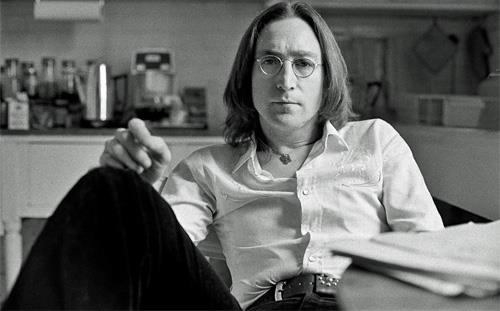
Over the several days before he was fatally shot – 40 years ago, believe it or not – John Lennon had recorded an extensive interview with British journalist Andy Peebles.
The occasion was the release of Lennon's new album with his wife Yoko Ono, Double Fantasy, but the interview branched out to cover a wide range of topics stretching back through Lennon's whole career.
Lennon's Last Weekend, an hour-long documentary that becomes available Tuesday on BritBox, is built around that interview session.
If only it contained more of the interview.
We hear Lennon's recorded comments in brief snatches, and they reinforce Peebles's assertion that Lennon seemed in good spirits and publicly, at least, at peace with his sometimes rocky past.
What we don't hear is enough Lennon.
The people who do speak, including Peebles, journalist Paul Gambaccini, and Lennon musical collaborators Klaus Voorman and Earl Slick, are informed and legitimate commentators.
But Brian Grant's direction, unfortunately, gives them little focus. They weren't there for the last weekend, so they talk about earlier moments in Lennon's career or provide wider general reflections.
We get a segment on, for instance, Lennon's self-described 18-month "lost weekend," when he was separated from Yoko and lurched around like a drunken teenager with some of his rock 'n' roll pals.
It was part of his life, yes. It's also been done to death, and if we were going to revisit, we should have heard from May Pang, as well, the woman with whom he spent most of that time. While she's sitting next to him in several still photos, her name is never mentioned.
Lennon's Last Weekend also spends considerable time on his battle with U.S. immigration in the early 1970s, when then-President Richard Nixon endorsed a campaign to have him deported based on a long-ago minor marijuana possession case.
It's finally noted here that Nixon probably had only the vaguest idea who Lennon was, except he was a high-profile peace activist at a time when Nixon was tired of peace activists.
The immigration story is not uninteresting. In fact, it's chillingly instructive. But it's been covered before, in more revealing detail, and Lennon's Last Weekend doesn't have time to really explore the nuances. It tells us Nixon was a villain and Lennon was a victim, which is the truth, but only a superficial truth.
Meanwhile, tantalizingly, the documentary keeps referencing the tapes. It even shows a close-up of a reel-to-reel machine like the one on which Peebles recorded the interview.
But all we get are brief excerpts, a sentence here and there. When Peebles brings up the song "How Do You Sleep" and asks how it reflected Lennon's feelings toward his long-time partner Paul McCartney, Lennon tries to toss it off by saying it was just part of the good-natured rivalry he and Paul always played out.
Maybe, though more likely not. But the segment ends quickly, followed by a printed statement on the screen saying that Lennon and McCartney made up and made music together again.
Oh?
All that said, it's good to hear Lennon's voice at all on this latest anniversary of his death, which was one of those moments from which many fans never completely recovered.
It's heartening to hear the commentators here say he seemed pretty happy, which is not something that everyone who knew him at the time has said.
But since those tapes may be the closest thing we have to his valedictory, it would have been nice if we had heard more of them.